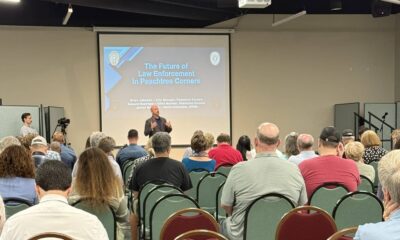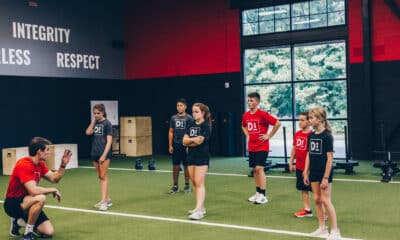Health & Wellness
Gwinnett County offers $100 Gift Cards at community wide Covid-19 Vaccination Event
Published
3 years agoon

December 10, 11 & 12
As the year comes to a close, Gwinnett County, working with groups across the community, encourages its residents to finish 2021 strong with a COVID-19 vaccine or booster. The County is offering $100 Visa gift cards, while supplies last, to people ages 5 and up who receive a COVID-19 vaccine at the Finish Strong Together community-wide vaccine incentive event this weekend. The Finish Strong Together partners include the Gwinnett, Newton and Rockdale County Health Departments, Piedmont Eastside, Emergent Testing and COVID Care Georgia.
From Friday, December 10 to Sunday, December 12, Finish Strong Together partners will host vaccine clinics throughout the Gwinnett community. With a variety of locations and available hours, a dedicated website has been created for the event. Visit FinishStrongTogether.com for specific location, hours and appointment information. Appointments are strongly encouraged.
Vaccines are free. ID and insurance cards are not required but encouraged. People without insurance or ID will not be turned away. People should also bring their CDC vaccination card if they’ve already received at least one dose of a COVID-19 vaccine.
“Whether it’s a first shot, second dose or booster, for adults or children, we want to make sure all of our residents have the opportunity to receive the COVID-19 vaccine,” said Dr. Audrey Arona, district health director for Gwinnett, Newton and Rockdale County Health Departments. “We have worked with partners across this community to ensure that there are vaccine locations close to where our residents live, work and shop and that there are extended hours to remove barriers to getting the much-needed vaccine.”
Any Gwinnett resident who gets a vaccine at one of the participating locations will receive a $100 gift card while supplies last. The County is using federal funding from the American Rescue Plan Act to pay for the vaccine incentive gift cards.
“We are pleased to be a part of this community-wide event and to provide an extra push with the incentive of holiday spending money at the end of the year to ensure we reach all of our residents,” said Gwinnett County Board of Commissioners Chairwoman Nicole Hendrickson. “It is so important to our community that we are diligent and finish 2021 strong together by encouraging our family, friends and neighbors to get vaccinated this weekend.”
Vaccines for ages 5 and older:
Emergent Testing (Drive-Up Service) – 3110 Lawrenceville-Suwanee Road, Suwanee, GA 30024. No appointment necessary but pre-registration for contactless service is available.
Piedmont Eastside Medical Plaza 2 (Walk-In Service) — 1800 Tree Lane, Suite 250, Snellville, GA 30078. Appointments are strongly encouraged but not required.
COVID Care Georgia, Plaza Las Americas (Drive-Up Service) – 733 Pleasant Hill Road, Lilburn, GA 30047. Appointments are strongly encouraged but not required.
Vaccines for ages 12 and older:
Gwinnett County Health Department Gwinnett Place Mall Vaccination Site (Appointment Walk-In Service) — in the former Sears at Gwinnett Place Mall — 2100 Pleasant Hill Road, Duluth, GA 30096. Appointments are strongly encouraged but walk-in clients will be served, as able, based on open appointment slots.
Related

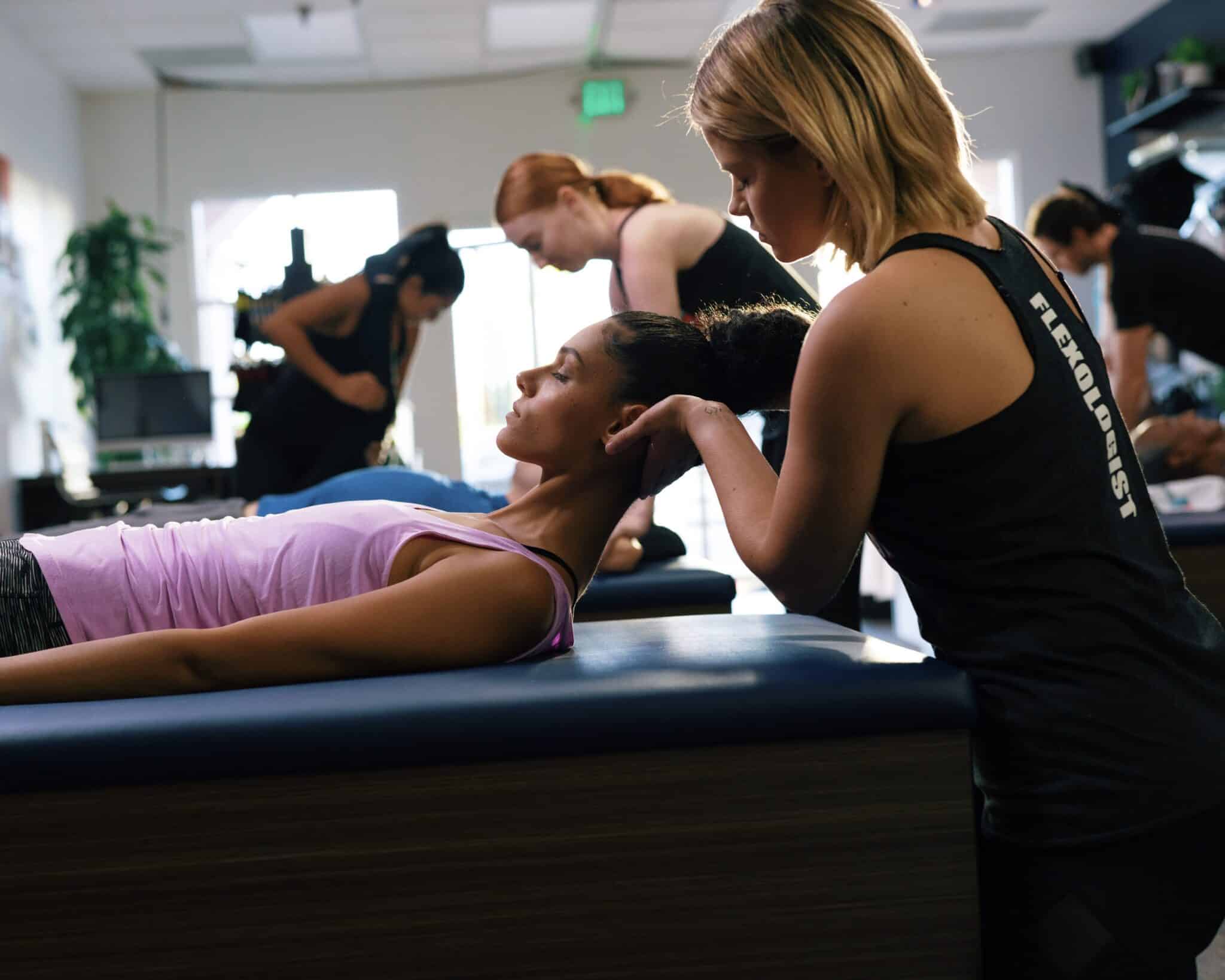
The Forum in Peachtree Corners features a variety of businesses focused on health and wellness, offering services designed to meet individual needs. From fitness programs and recovery treatments to relaxation and aesthetic care, each business prioritizes physical and mental well-being.
StretchLab
StretchLab offers personalized stretching sessions to improve flexibility, mobility and overall physical health. Each client’s journey begins with a focus on their goals, whether it’s enhancing athletic performance, reducing stress or relieving pain.
“We dive into understanding each individual’s physical and mental needs to craft the perfect stretch experience,” said franchise owner Ghada Kheirbek.
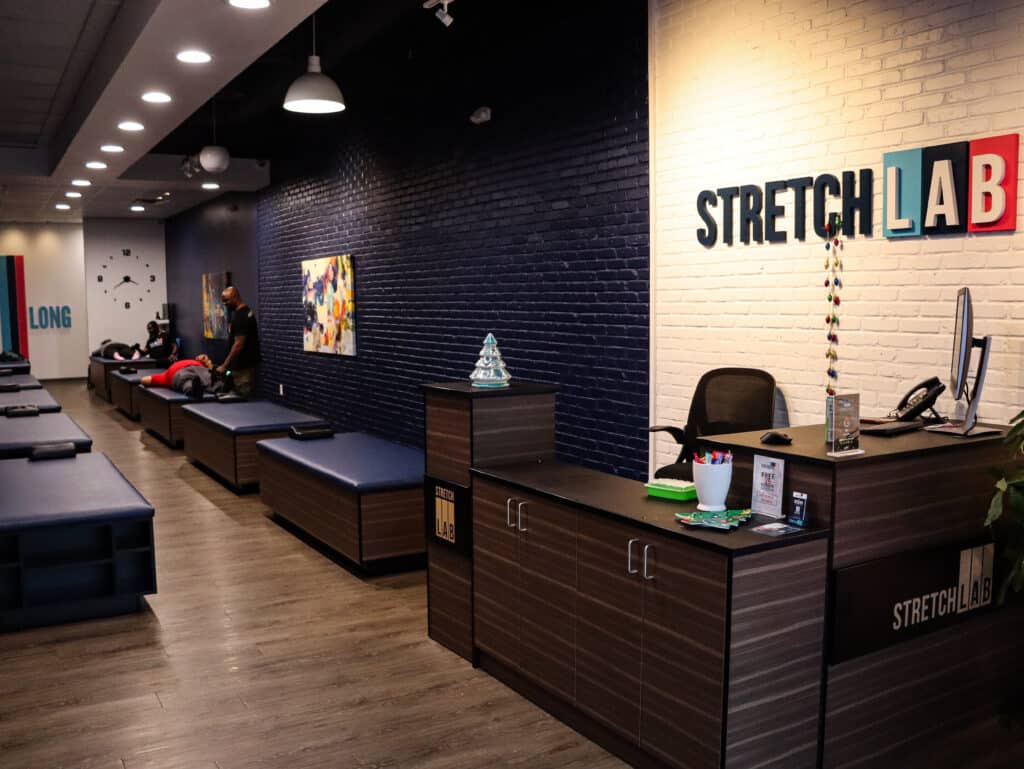
StretchLab’s MAPS technology sets it apart, analyzing Mobility, Activation, Posture and Symmetry using advanced tools. This allows flexologists to create custom plans tailored to individual progress. Sessions incorporate Proprioceptive Neuromuscular Facilitation (PNF) techniques, combining muscle activation and deep stretching for long-term results.
“Our approach focuses on areas you can’t stretch on your own, unlocking better movement and relief,” Kheirbek explained.
Community engagement is a priority, with partnerships with local schools, yoga studios and organizations.
StretchLab is located at 4880 Peachtree Parkway, Suite 1125, Peachtree Corners, GA 30092. For more information or to schedule a session, visit stretchlab.com/location/peachtree-corners or call (470) 410-6664.
Dermani MedSpa
Dermani MedSpa provides medical-grade aesthetic treatments, including facials, Botox and laser hair removal. The medspa focuses on enhancing natural beauty while prioritizing safety and comfort, offering services performed by highly trained staff in a professional, welcoming environment.
Each treatment is tailored to individual needs, ensuring clients achieve results aligned with their goals. Clients value the medspa’s attention to detail and commitment to quality, making it a trusted choice for aesthetic care.
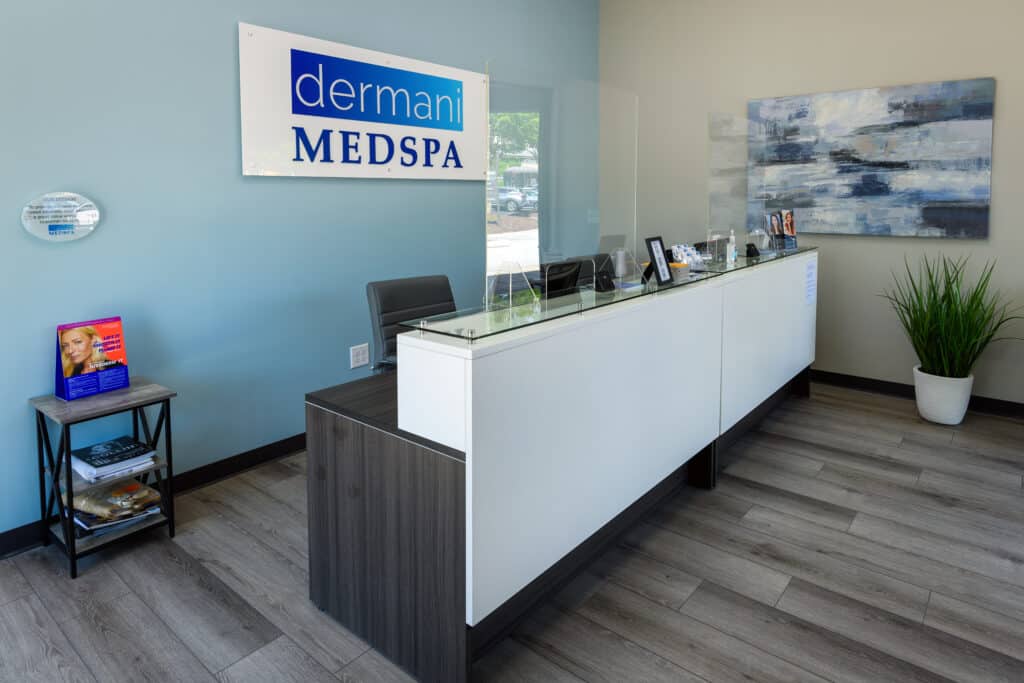
“Dermani offers a variety of medical-based aesthetic treatments,” said Charlotte Hinton, marketing manager at Jamestown, The Forum. “Outside of just loving their team as a whole — their girls are the best — my colleagues and I love to see them for facials, Botox and laser hair removal.”
The medspa’s reliable, results-driven services cater to clients seeking everything from routine skin maintenance to advanced aesthetic solutions.
Dermani MedSpa is located at 5165 Peachtree Parkway, Suite 230, Peachtree Corners, GA 30092. To schedule an appointment or learn more, visit dermanimedspa.com/peachtree-corners-norcross or call (404) 383-1108.
The NOW Massage
The NOW Massage is more than just a spa; it’s a tranquil retreat designed to help clients disconnect from daily stress and reconnect within. The massage studio has a serene atmosphere inspired by beachside destinations.
“In today’s fast-paced, digitally driven world, self-care is no longer a luxury but a necessity,” said Gara Post, co-founder of The NOW Massage.
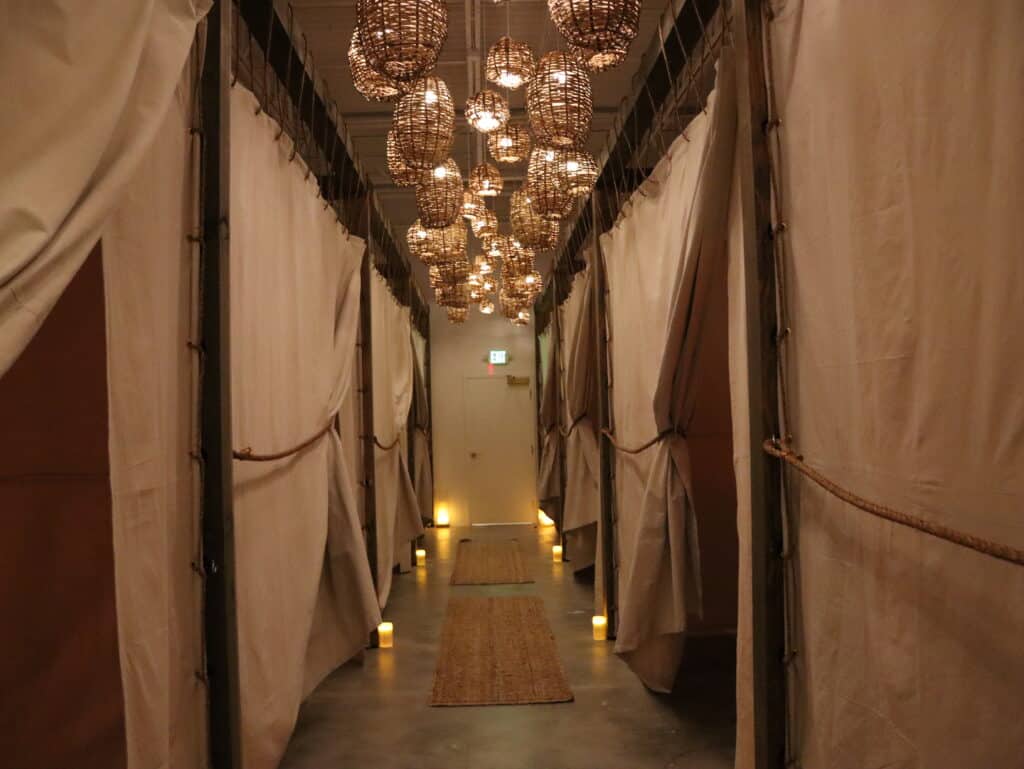
The NOW’s thoughtfully curated menu features three signature massages: The NOW, a relaxation-focused experience; The HEALER, which balances energy and reduces stress; and The STRETCH, a recovery-focused massage ideal for active lifestyles. Enhancements like Herbal Heat Therapy, Deep Tissue and Gua Sha allow clients to customize their experience.
“Our therapists undergo advanced training to ensure each session is tailored to individual needs,” explained Devin Borland, franchise owner.
Community involvement is central to The NOW’s mission. The studio supports first responders, recognizes educators and participates in local wellness events. “We’re proud to be part of the Peachtree Corners community,” Borland added.
The NOW Massage is located at 5161 Peachtree Parkway, Suite 615, Peachtree Corners, GA 30092. For appointments, visit thenowmassage.com/peachtree-corners or call (678) 615-3375.
Alloy Personal Training
Alloy Personal Training is redefining fitness in Peachtree Corners with a personalized approach tailored to help clients achieve lasting health and wellness.
“Our goal is to create a sustainable fitness journey for every individual, no matter where they’re starting,” said Margaret Bruemmer, fitness director at Alloy Personal Training.
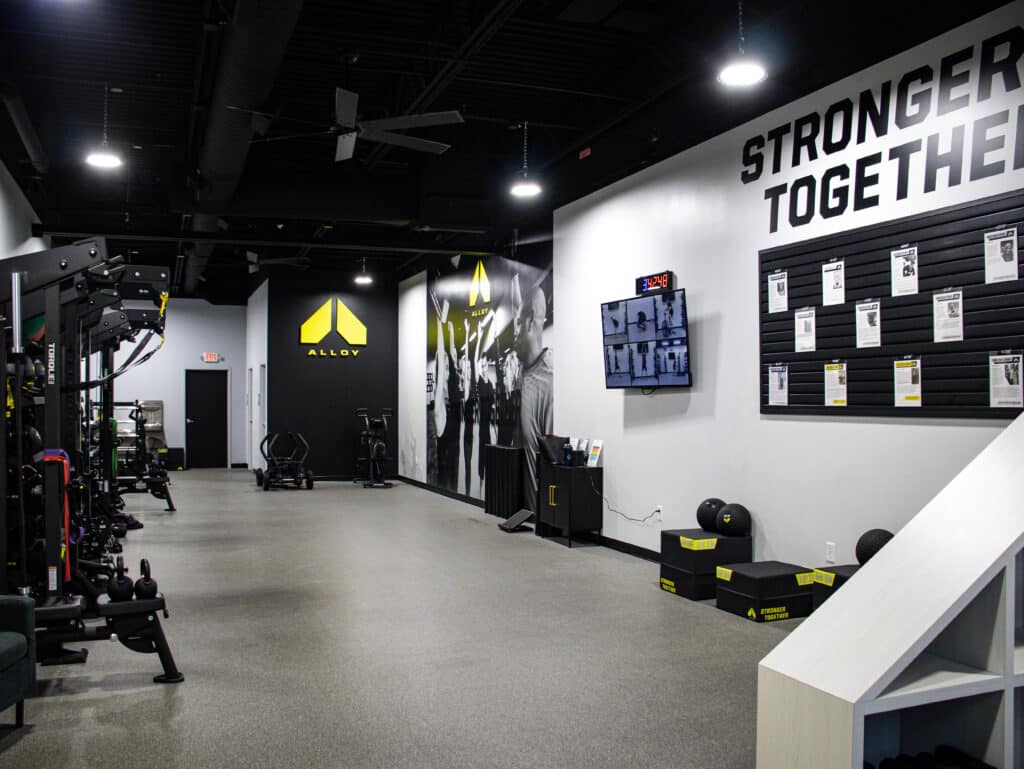
At the heart of Alloy’s method is the Functional Movement Screen (FMS), a comprehensive evaluation tool that assesses a client’s current fitness level. This process ensures that every workout is not only effective but also safe.
“We use FMS to identify a client’s unique needs and design a program that works for them,” Bruemmer explained.
Trainers provide one-on-one guidance, helping clients navigate structured routines that focus on proper form, technique and measurable progress. Each session builds confidence while addressing individual health goals.
Located at 4880 Peachtree Parkway, Suite 1135, Peachtree Corners, GA 30092, Alloy Personal Training offers flexible hours to accommodate clients’ busy lifestyles. To learn more or schedule a consultation, visit alloypersonaltraining.com/location/alloy-peachtree-corners-ga or call (678) 578-4984.
Club Pilates
Club Pilates combines timeless Pilates principles with innovative techniques to offer a holistic approach to fitness and wellness. The studio provides a welcoming environment for clients of all fitness levels, ensuring that everyone can benefit from the practice.
“Pilates is about more than just fitness — it’s about helping our members discover balance, both physically and mentally,” said Victoria Steere, director of community engagement.
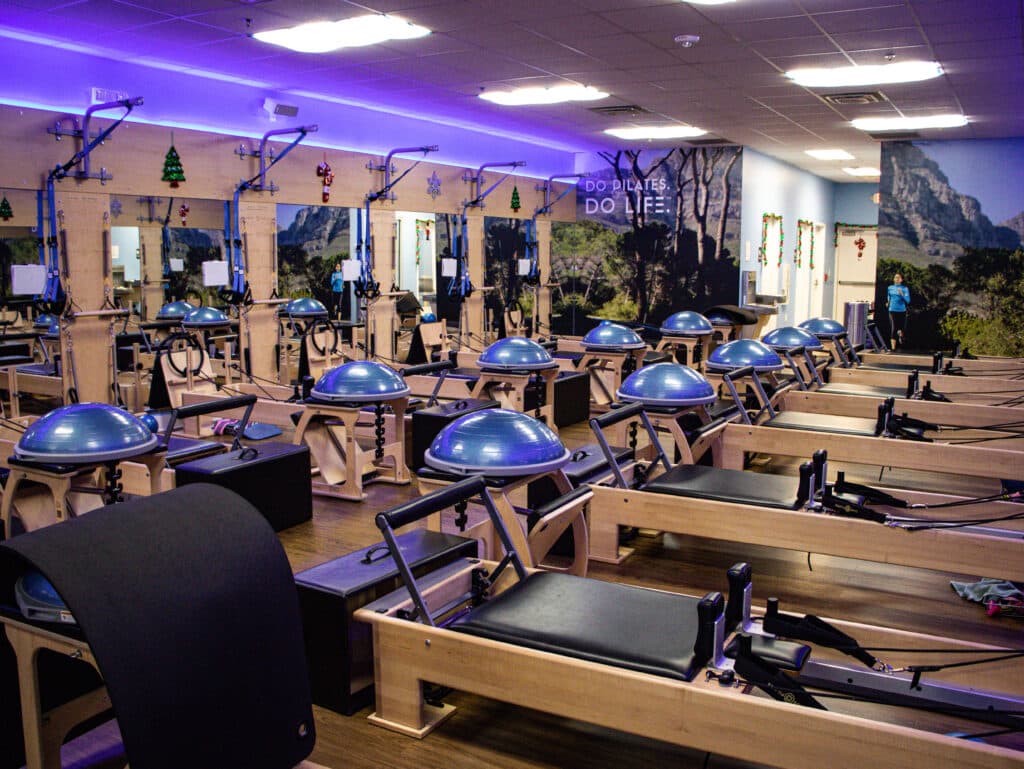
Each class is tailored to individual needs, with certified instructors guiding clients through sessions that improve posture, core strength and overall body awareness. Whether it’s a high-energy cardio class or a gentle stretch-focused session, Club Pilates helps clients achieve their fitness goals while promoting mindfulness and intentional movement.
“Many of our members describe their time here as an essential hour of self-care, a break from their busy lives,” Steere added.
By integrating physical and mental balance into its classes, Club Pilates empowers clients to leave each session feeling stronger, more confident and recharged.
The studio is located at 4880 Peachtree Parkway, Suite 1130, Peachtree Corners, GA 30092. For more information or to schedule a session, visit clubpilates.com/location/peachtreecorners or call (404) 902-2583.
Icebox Cryotherapy
Icebox Cryotherapy brings innovative recovery and wellness treatments to Peachtree Corners, offering clients a practical way to rejuvenate their bodies and manage stress. Specializing in full-body cryotherapy, cryofacials and compression therapy, the studio is a haven for those seeking to reduce inflammation, improve circulation and enhance overall physical performance.
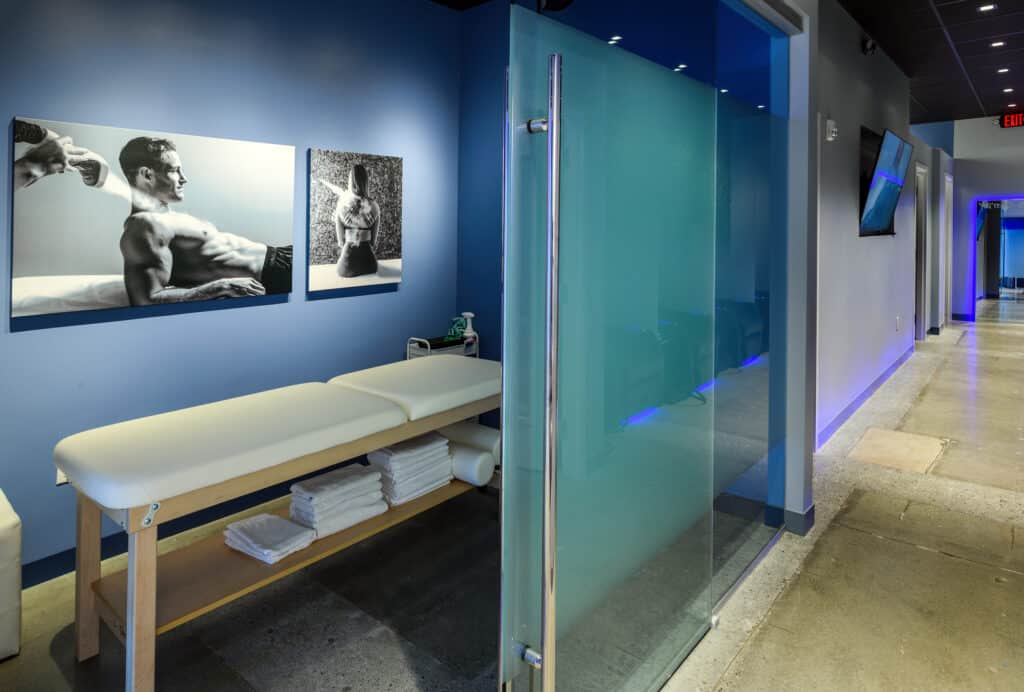
Full-body cryotherapy sessions expose the body to controlled cold temperatures, stimulating a natural response that accelerates recovery and reduces tension. Cryofacials, on the other hand, provide a gentle way to refresh the skin, diminish puffiness and promote a youthful glow. For athletes or individuals managing chronic muscle stress, compression therapy targets specific areas to relieve tension and improve mobility.
“They’re a fantastic option for anyone looking to rejuvenate their skin while managing stress,” shared Hinton.
Located at 4880 Peachtree Parkway, Suite 1120B, Peachtree Corners, GA 30092, Icebox Cryotherapy invites clients to experience their transformative services. For appointments or more information, visit iceboxtherapy.com/peachtree-corners-ga or call (678) 284-2570.
Perspire Sauna Studio
Perspire Sauna Studio is set to redefine wellness in Peachtree Corners, combining ancient practices with modern technology to create a sanctuary for self-care. Offering infrared sauna therapy, red-light therapy and contrast therapy, the studio is designed to help clients detox, de-stress and recharge.
“We’re bringing cutting-edge wellness options to the community, creating a space where self-care becomes a part of your weekly routine,” said Amanda Arboleda Ridley, studio owner.
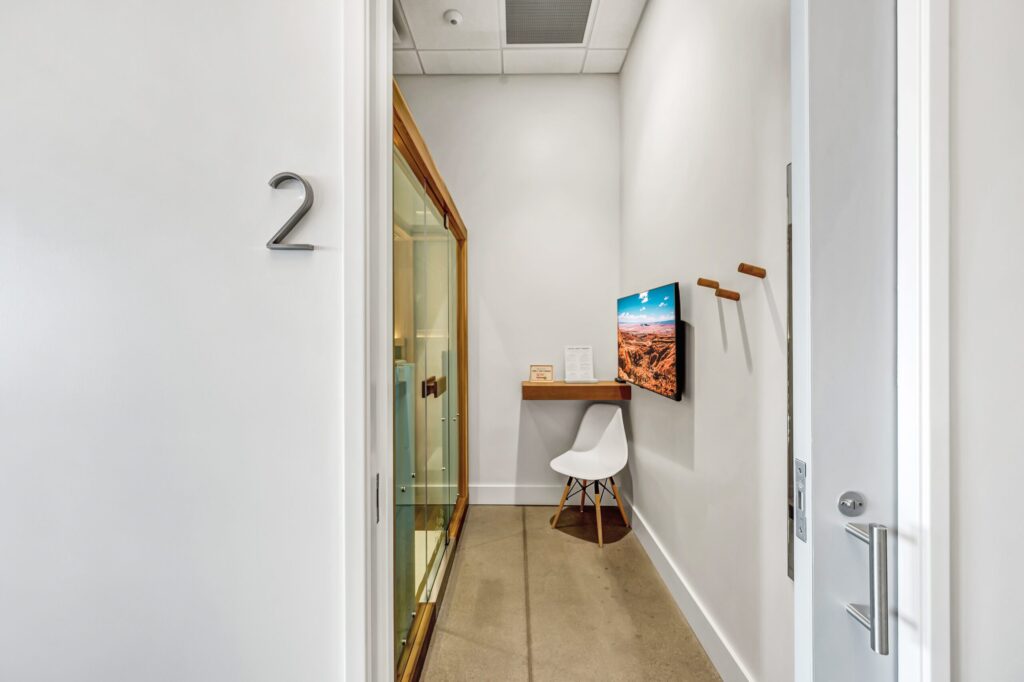
Infrared saunas use controlled heat to promote detoxification and improve circulation, providing both physical and mental health benefits. Red-light therapy enhances skin health and stimulates cellular repair, while contrast therapy alternates between hot and cold treatments to invigorate the body and strengthen the immune system.
“Whether it’s a deep detox, improving your skin or just carving out 40 minutes of uninterrupted ‘you’ time, we help clients feel their best,” Ridley explained.
For those seeking a tranquil environment to reset and recharge, Perspire Sauna Studio offers a personalized experience tailored to individual wellness goals.
The studio will be located at 4880 Peachtree Parkway, Suite 1120A, Peachtree Corners, GA 30092. For updates and inquiries, visit their website, perspiresaunastudio.com/ga/peachtree-corners, or contact them directly.
Related
City Government
City of Peachtree Corners Awarded Health Wellness Grant
Published
6 months agoon
November 7, 2024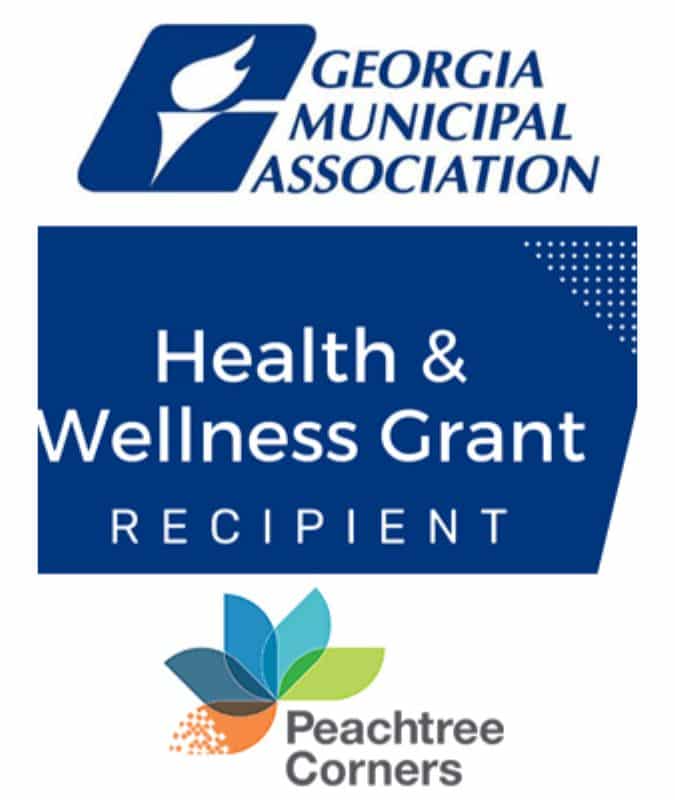
The City of Peachtree Corners has been awarded one of the 2024 Health Wellness Grants by the Georgia Municipal Association (GMA). The grant supports the city’s commitment to facilitating positive change in workplace culture and going the extra mile for employees’ health and wellness.
GMA is honored to collaborate with the City of Peachtree Corners at every step of their health wellness journey. Awards are made statewide to participating employers enrolled in one or more medical plans through the Georgia Municipal Employees Benefit Services (GMEBS) Life and Health Insurance Fund.
The Health Wellness Program at GMA helps members embrace a variety of skills, mindsets and cultures to encourage utmost well-being through workplace health wellness initiatives. These initiatives have demonstrated a track record of improving employee well-being and quality of life while enhancing workplace morale, reducing medical claims and maximizing cost impact.
“As a city, we are committed to fostering an environment where our employees’ health and well-being are a top priority,” said City Manager Brian Johnson. “This grant will enable us to build on our efforts to create a workplace culture that not only promotes wellness but also empowers our staff to make healthier lifestyle choices every day. Our employees are our greatest asset, and investing in their well-being ultimately benefits both the City of Peachtree Corners and the community we serve.”
Workplace health wellness
The City of Peachtree Corners has designated a Health Wellness Champion to coordinate/oversee the program and work in partnership with GMA to facilitate the planning of targeted activities. Jennifer Bonacci, assistant finance director, has expounded on how the City of Peachtree Corners will benefit from implementing workplace health wellness initiatives.
“We are excited to use our grant money to help make a difference in the lives of our employees by creating an atmosphere of health and wellness,” said Bonacci. “Adult fitness opportunities are often put on the back burner due to work schedules, long commutes and family obligations. We hope to enable our employees to make small choices each day to increase their overall health and wellness and build a community of support and encouragement around health and wellness.”
For more about the City of Peachtree Corners, visit peachtreecornersga.gov/1/Home.
To learn more about GMA’s Health Wellness Program, visit them online here.
Related
Health & Wellness
The NOW Massage Opens Peachtree Corners Boutique at The Forum
Published
7 months agoon
October 15, 2024
Grand opening set for October 21
The NOW Massage, a growing wellness franchise offering high-quality, affordable massage services in a chic, inspired setting, will open its first Peachtree Corners location on Monday, October 21. The boutique, located in a 2,414-square-foot space at The Forum, is owned and operated by area residents Devin and Amanda Borland, who also own and operate The NOW Massage Roswell. They bring over a decade of sales and customer service experience to their franchising journey with The NOW.
“After building a loyal following of guests and Ritual Members at our Roswell boutique, we look forward to introducing Peachtree Corners to The NOW’s menu of customizable massages, monthly memberships and nourishing products,” said Devin.

Each The NOW Massage location is designed with a minimalist aesthetic that incorporates raw elements and natural materials to create a soothing oasis. Interiors feature natural wood surfaces and exposed beams coupled with sheep skins and rawhides, cactus galleries and crystal grids, setting the tone for a relaxing experience.
Grand opening specials
To celebrate the boutique’s grand opening week from October 21–28, all massage bookings will receive a complimentary enhancement. Guests can choose from two of The NOW’s best-selling signature add-on treatments to amplify their therapeutic massage, including Herbal Heat Therapy, in which heat packs are used on the neck and back during treatment to provide a deeper sense of relaxation or Fresh Eyes, a soothing, hydrating eye mask with vitamins and antioxidants.
For guests who want to make massage a regular part of their monthly or bi-monthly self-care routine, The NOW also offers Ritual Membership packages that include savings on massages, roll over credits, perks and more.
The first 50 guests to join as a Ritual Member at the Peachtree Corners location will receive a complimentary curated gift bag filled with a selection of best-selling products from the company’s Nourish, Scent and Room collections.
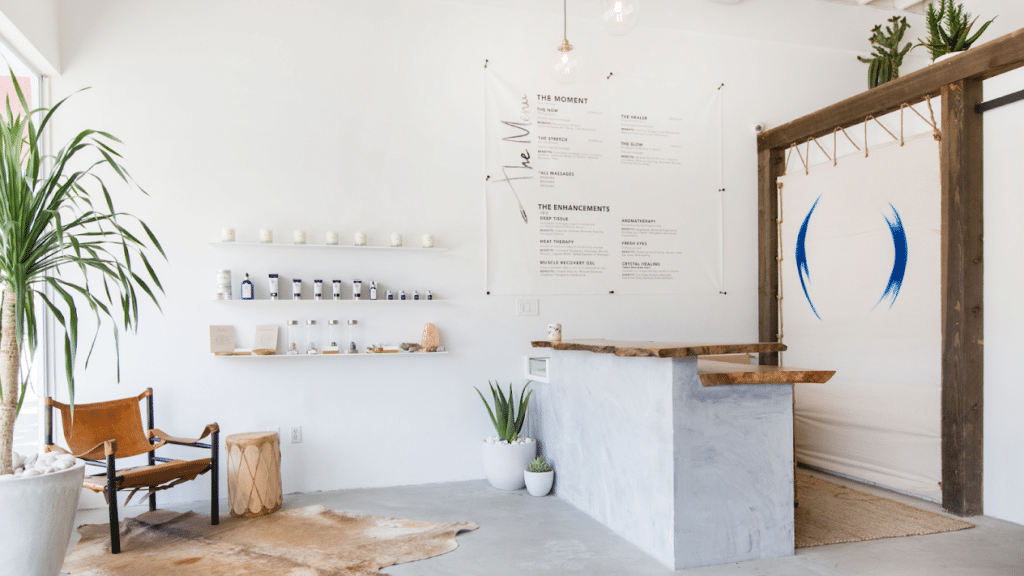
With boutiques currently open from coast to coast and steady expansion on the horizon, The NOW Massage is excited to bring its thoughtfully crafted menu, healing products and signature design to The Forum in Peachtree Corners and to other cities across the United States.
For more information or to book a massage, visit thenowmassage.com/peachtree-corners.
Related
Read the Digital Edition
Subscribe
Keep Up With Peachtree Corners News
Join our mailing list to receive the latest news and updates from our team.
You have Successfully Subscribed!

Digital Edition

Official City Merchandise Line Debuts This Saturday at Town Green

Paul Duke STEM High School Student Earns CGO Scholarship

World Blood Donor Day Starts Here: Theo’s Miracle, Katherine’s Mission [Podcast]

Executive Function: A Tribute to Working Moms

Peachtree Corners Grows Business Opportunities Through Economic Development

Simpson Elementary Marks Exceptional Children’s Week

Peachtree Corners Hosts Discussion About the Future of Local Policing

Atlanta’s Dog Howl-O-Ween Festival Moving to Peachtree Corners for 2025

D1 Training Brings New Fitness Concept to Peachtree Corners

Peachtree Corners Hosts Discussion About the Future of Local Policing

City of Peachtree Corners Awarded Certificate of Achievement From GFOA for Seventh Straight Year

Simpson Elementary Marks Exceptional Children’s Week

Executive Function: A Tribute to Working Moms

Official City Merchandise Line Debuts This Saturday at Town Green

Peachtree Corners Grows Business Opportunities Through Economic Development

Light up the Corners [Video]

Capitalist Sage: Business Leadership in Your Community [Podcast]

Cliff Bramble: A Culinary Adventure through Italy

Top 10 Brunch Places in Gwinnett County

A Hunger for Hospitality

THE CORNERS EPISODE 3 – BLAXICAN PART 1

Top 10 Indoor Things To Do This Winter

The ED Hour: What it takes to Remove Barriers from Education





